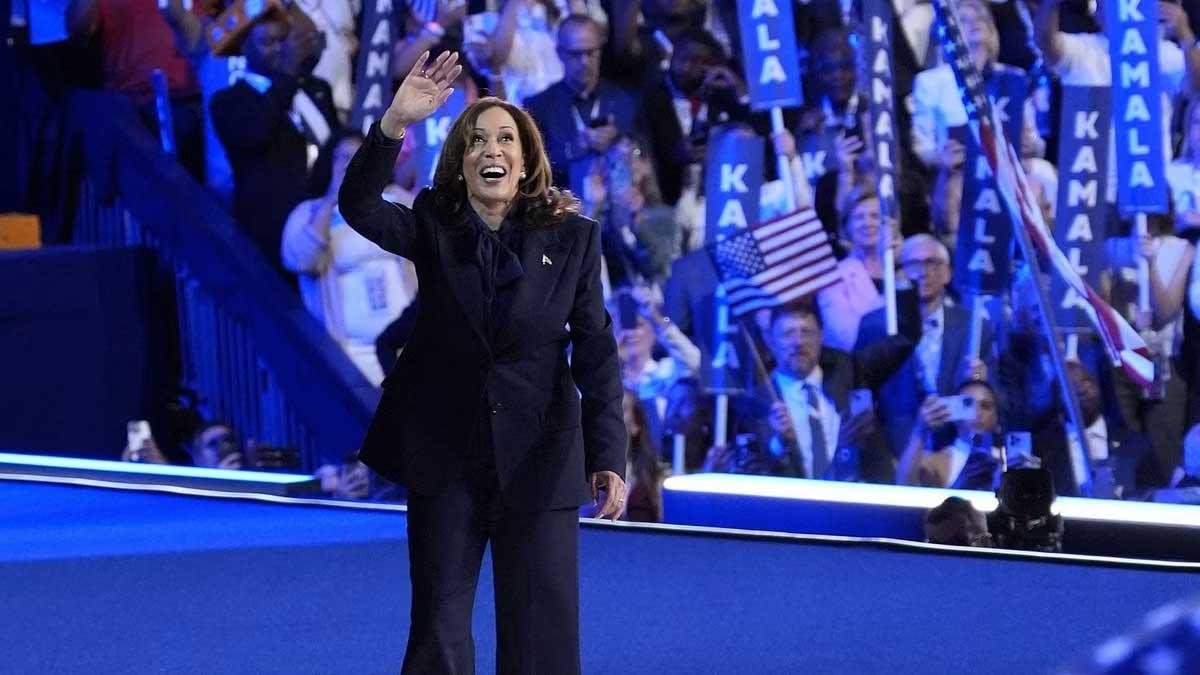Bad omens for Democrats may lie ahead from the new report in terms of a shrinking trend regarding party affinity in the U.S. amongst Indian Americans who identify more and more with the Democrats as 76% claim their own voting support, compared to previous research conducted over 2002.
Meanwhile, "2012 2024 IndianAmerican Attitudes" also surveyed 2018 about respondents for the share of voters still identifying themselves with one or the other: still "steady", by researchers in a joint project through the Carnegie Endowment for International Peace along with its associated research firm, YouGov.
The analysis is based on a nationally representative online survey of 714 Indian-American citizens between September 18 and October 15. The survey has an overall margin of error of +/- 3.7 per cent. According to the survey, 61 percent of the registered Indian-American voter respondents are planning to vote for Harris, while 32 percent intend to vote for Trump.
It said a modest increase in the share of respondents who said they would vote for Trump had been seen since 2020.
On the other hand, 67 percent of Indian-American women say they will vote for Harris while 53 percent of men say they intend to vote for Harris. Twenty-two percent of women say they will vote for Trump while 39 percent of men say they will vote for him. This gender gap appears starkest with younger voters, according to the survey.
The more than 5.2 million people of Indian origin living in the United States mean that Indian-Americans are the second-largest immigrant group in the United States and, through the community's rapid demographic growth, the close margins in modern presidential elections, and the diaspora's remarkable professional success, have become an important political actor.
Abortion and reproductive rights is a very salient issue for Indian Americans this election year, ranking as their second-most important policy concern (after inflation/prices and tied with the economy and jobs). In fact, Democrats and women in particular are motivated by the abortion issue this election cycle, according to the report.
"Although Indian-Americans hold a dim view of many prominent Republican leaders, the party's disadvantage with Indian-Americans goes beyond personalities," the report suggested. It said the Republican Party was out of sync with multiple policy positions held by members of the Indian-American community. "When Democrats are asked why they do not identify as Republicans, they cite the latter's intolerance of minorities, its stance on abortion, and ties to Christian evangelicalism above all," it said.
According to the report, Indian-American Republicans such as Nikki Haley, Vivek Ramaswamy and Usha Vance, the wife of Republican vice-presidential candidate JD Vance, are rated unfavorably. But the evidence shows asymmetric polarisation, with Democrats rating prominent Republicans worse than Republicans rate leading Democrats, said the report.
Of the 5.2 million people of Indian origin living in the US, about 3.9 million are eighteen or older. The data for the year 2022 reflects about 2.6 million Indian-American eligible voters in the US. The Indian diaspora is a small share of the overall electorate, but several factors explain the heightened attention to this group in this election year.
Indian-Americans are what is termed "high propensity" voters, the report said. The data from the Indian-American Attitudes Survey (IAAS) said 96 per cent of registered Indian-American voters are likely to vote in this November's elections. Second, the community's elevated socioeconomic status has made it an attractive target for campaigns run by both parties. The median household income for Indian Americans is roughly USD 153,000, more than double the figure for the country as a whole.
Little doubt that there is much more focus on the political views of Indian-Americans this election year, given that Kamala Harris is on the ballot: Her mother was an Indian immigrant. While Harris has always defined herself as an African-American woman, she does recognize and celebrate her Indian origins, the report said.
Finally, there are some indications that Asian Americans might be slowly moving away from their traditional home, the Democratic Party, and drifting towards the Republican Party. Compared to other racial and ethnic groups, Asian Americans have relatively weaker ties with political parties, and past elections have witnessed incremental vote-share gains for the Republicans from this group, while a similar trend is found in other non-White voters as well, it added.
Read also| Hamas and Hezbollah No Longer ‘Effective’ Proxies for Iran, Israeli Defense Minister
Read also| China Reports Smooth Disengagement of Troops in Eastern Ladakh


















